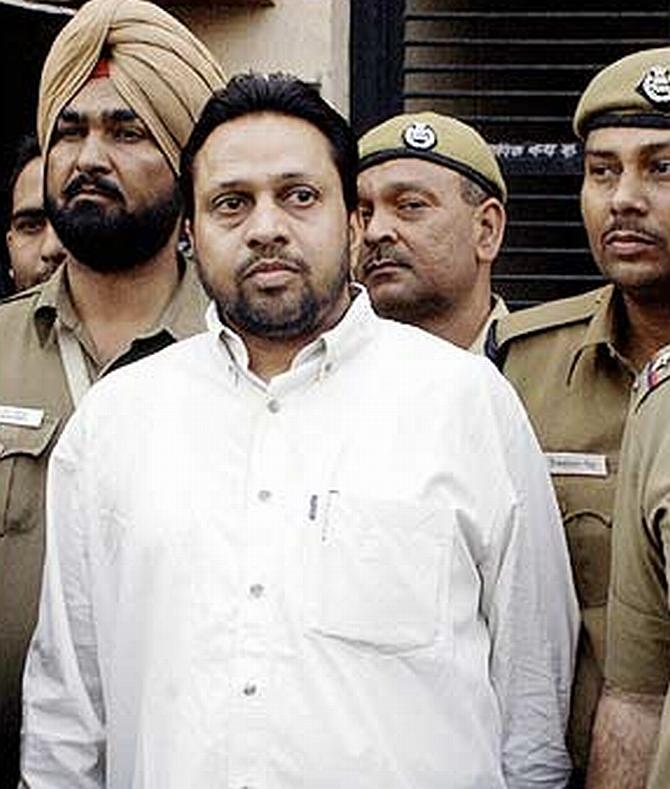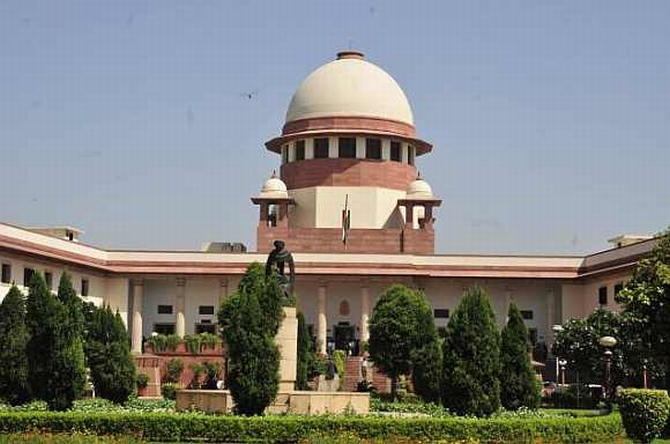Eighteen years after he murdered his wife and burnt her body in a tandoor, the Supreme Court on Tuesday commuted to life imprisonment the death penalty awarded to former Youth Congress leader Sushil Sharma in the case that had sent shockwaves across the nation.
Sharma was given as lesser sentence by the apex court as he did not have any criminal antecedents before the murder, which was committed because of a strained personal relationship.
While granting relief to Sharma, the bench noted mitigating factors like no family members of the victim deposed against him and he was very remorseful on the death of his wife and that he cannot be considered a threat to society.
Sharma had murdered his wife Naina Sahni on the suspicion that she was having an extra-marital affair. He then cut her body into pieces and burnt them in a clay oven of the then government-owned hotel Ashok Yatri Niwas.
A bench headed by Chief Justice P Sathasivam allowed Sharma's appeal challenging the order of trial court, which had awarded him death sentence that was subsequently upheld by the Delhi high court.
The gruesome murder, which took place on the intervening night of July 2-3, 1995, shook the conscience of the nation. The bench said the imprisonment would be for the entire life, subject to remission, which must be done by following proper procedure.
…
Tandoor murder: SC commutes Sushil Sharma's death penalty to life term
In his plea, Sharma had contended that his conviction was entirely based on circumstantial evidence and thus death penalty cannot be awarded to him.
Sharma has in his petition filed in 2007 contended the high court had erroneously concluded that the offence committed by him falls under the “rarest of rare” category, warranting capital punishment.
The high court had on February 19, 2007 confirmed the death penalty awarded to him by the trial court, saying the offence was an act of extreme depravity that shook the conscience of society.
It had held the reasoning given by the trial court for convicting and awarding death sentence to Sharma in the case was justified and he did not deserve any mercy for the gruesome killing.
The high court had rejected the mercy plea of reducing the death sentence into life imprisonment for Sharma. It had rejected his contention that the offence was committed on the spur of moment. The trial court had on November 7, 2003 sentenced Sharma to death for killing his wife at their residence in Gole Market area in central Delhi.
TOP photo features you missed last week
...



article